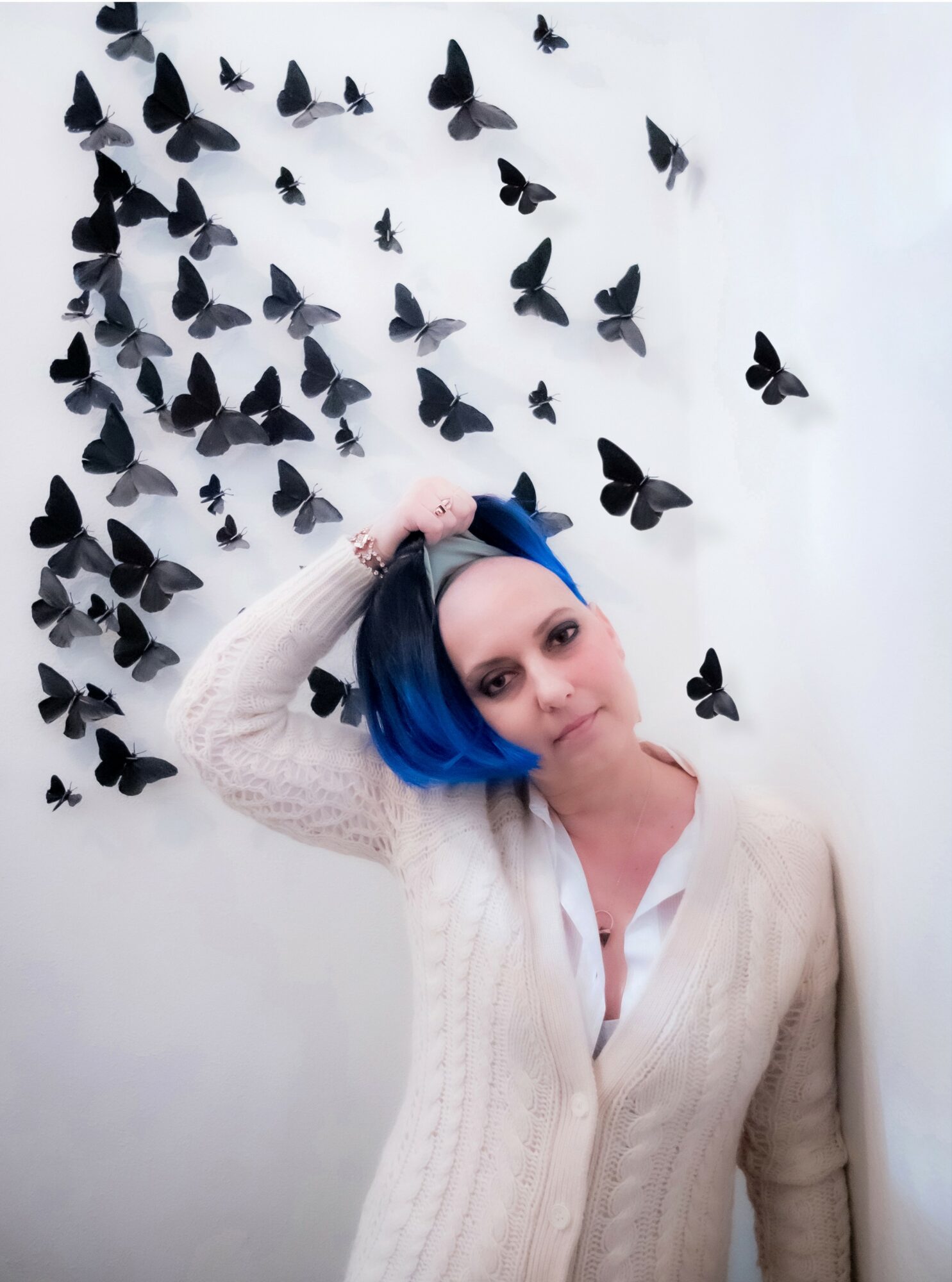

Today we’d like to introduce you to Traci Asher
Hi Traci, please kick things off for us with an introduction to yourself and your story.
Becoming the subject of a photographic series about breast cancer and metastatic breast cancer has been one of the scariest and most meaningful decisions I’ve ever made.
I’m an informed woman with strong opinions who can deal with anything as long as I’m told the unvarnished truth. I strive to be an honest narrator with a dose of Gen X’er quality gallows humor. I’m a wife in love with her wonderfully understanding husband. I could look at my scars and feel flawed, but I don’t. I see a new version of myself that I’m learning to love more each day. They remind me to be calm, to listen, to enjoy, and try to find the positives in the most unfair situations.
I’m often asked how I’ve dealt with such devastating news, and the answer is a simple one: each time I’ve been diagnosed, I cry for 30 minutes, regain my composure, and prepare myself to start asking questions. The steps are always the same, in the same order, and of remarkably similar duration: I grieve, I plan, and then I prepare.
When I was first diagnosed with cancer, I grieved for the body I was going to lose, I planned to be aggressive with treatment, and I prepared to document my journey. I always hear my dad’s voice saying the following about important milestones: “Remember everything — this might make a great movie one day.” Perhaps I took him a little too literally by creating 1 CANCER PATIENT a unique photo journal to guide difficult cancer conversations. Cancer does not define me, but I cannot deny the impact it’s had on my adult life. I am more than a survivor; I am a thriver. As a thriver, I choose to look toward the future instead of clinging to the past. I use my experiences to learn from and grow, and not be limited by brokenness.
I felt guilty about missing a single annual checkup, as well as, the obvious mass at the back of my right breast. I then realized that although I knew how to examine myself, I never really knew what I was feeling around for, and I soon discovered that most women don’t. The only personal experience I had of breast cancer came from when my mom survived it 28 years before and it made me mad that no one ever thought to test us for the BRCA gene mutation. Once I tested positive, I began advocating that my mom and younger sister and then other women and men find a genetic counselor and find out if they’re at risk, with the understanding that a positive result meant a personal decision about prophylactic surgeries because they’re approximately 80% at risk of breast cancer.
When friends started calling me a warrior (or after my oncologist referred to me as a wonder woman), I was too modest to agree. It seemed that I was just doing what I must in order to survive, and that didn’t feel particularly heroic. After all, what choice did I have? But after moving through my own journey, as well as, witnessing those of so many others, it suddenly occurred to me that after all we’ve gone through we’ve become Thrivers…and that makes us fierce forces of nature. Now what I feel most often is…Victorious!
We tend to focus on the outcome as a measure of success, but the real win is that we still got in the ring and put up our dukes.
I’m sure it wasn’t obstacle-free, but would you say the journey has been fairly smooth so far?
I was first diagnosed with stage III breast cancer on July 31, 2014, at the age of 39.
Three years after that, I was diagnosed with stage IV metastatic breast cancer, which appeared in the vertebrae of my neck.
Two years later, after complaining of headaches and dizziness, I went to the ER and was diagnosed with my third tumor. A brain CT scan and subsequent testing revealed stage IV metastatic breast cancer on the left side of my cerebellum.
Receiving every cancer diagnosis was shocking and heart- breaking. Looking toward the future seemed a monumental task. I have endured the emotional and physical pain that comes with cancer. I have survived many surgeries: double mastectomy, lymph node dissection, hysterectomy, breast reconstruction, a corpectomy, and then a craniotomy. Twice, I’ve had a port-a-cath surgically placed for chemotherapy and immunotherapy treatments. Three times I’ve been subjected to radiation therapies. There were MRIs, PET/CT scans, colonoscopy, and embolization. There were many hours of physical therapy for lymphedema in my right arm, nerve damage in my right leg, and a loss of range of motion in my neck after wearing a brace for 7 months.
Whether it was worrying about the side effects of cancer treatments, wondering if the tumor might be growing, researching non-Western alternatives, understanding what it meant to have the BRCA-1 gene mutation, or trying to navigate the confusing world of insurance companies, staying positive and pragmatic was exhausting.
My circle of friends has changed, but the relationships now are rooted in a deeper trust. My ability to continue with the same physical demands at work has also changed, and now I know who will not let me go unemployed.
This is the life of one cancer patient. The treatments and procedures may be complete, but like a relentless bully, the fight will follow me forever. Fear of the unknown was more debilitating for me than the fear of dying. I only had to convince myself that I wasn’t going to die one time and after I did that, it was all the unknowns that I had to contend with.
I found myself fluctuating between hope and loneliness or confusing grief with negativity. At one low-point, I was convinced my story wasn’t important enough to tell. Why would anyone want to see me go through something that thousands of women go through? Introspection can feel prickly, but I’ve come to understand that it’s okay to have contradictory emotions while rejoining life heading towards remission. I can do this despite the hurdles.
We’ve been impressed with 1 Cancer Patient, but for folks who might not be as familiar, what can you share with them about what you do and what sets you apart from others?
1 CANCER PATIENT a unique photo journal to guide difficult cancer conversations, visually chronicles many aspects of a person’s fight with this disease. This project is meant to alleviate fear of the unknown and to bring a sense of calm to anyone facing their own battle. Personal and intimate moments, frozen in time, reveal that strength, beauty, and humor are still possible even amidst surgeries, hair loss, chemotherapy treatments, and normally mundane struggles of everyday life. 1 Cancer Patient is intended to unmask the unknown that comes with a cancer diagnosis and show that a good (though altered) life is possible.
1 Cancer Patient was designed to assist patients, as well as, caregivers, loved ones, nurses, doctors, and therapists. I was honored when my book recently became mandatory reading in the Master of Arts in Counseling: Art Therapy and the PhD in Art Therapy Departments at Adler University, Chicago campus.
From the first diagnosis, I made the decision to photograph and journal my life as a cancer patient. Initially, it was to remember what I looked like before so that I could compare it to my new self when I had finished treatment. But over the last several years, I realized I wouldn’t know when my cancer fight was finished, so, photo-journaling evolved into so much more—it became a witness, a meditation, and a testament.
I confided in current cancer patients and those in remission. I participated in support groups, took advantage of the social workers available at the cancer center, and found my own therapist. Along the way, I’ve used my knowledge, experiences, and photographs to help mentor newly diagnosed cancer patients.
I kept hearing the same common questions and concerns that spanned across all different kinds of cancers. Every step was something new to research and worry about. I was afraid that everything was going to be painful. I obsessed about what I was going to look like. Then transitioning back into “normal” life felt just as debilitating as the fear of the actual cancer diagnosis. Because…now what?
I wished there was something that could help me understand exactly what to expect without feeling like I’m bothering somebody or sitting through a support group of many people with many stories that may or may not help me understand my situation. I finally came to the conclusion that I could be that person. I could create something that would explain breast cancer to anyone that wants to see what it looks like but from the comfort of their own home and in their own time. 1 Cancer Patient began as a photographic exhibit, and eventually, I self published the book, taught myself how to build a website and navigate social media. I shaped the content to revolve around those familiar questions and concerns.
In most circumstances, you are your best advocate, but I want to help prepare anyone touched by cancer for the fight ahead. It is my hope that these images, easy to understand definitions, and personal diary entries can be a guide. There is a normalcy intertwined with the chaotic stress involved in being a cancer patient. All cancers are different, and I can only speak to what I’ve gleaned personally from my experiences. Much of what I’ve learned is universal among cancer patients. Each time my life was turned upside down with another diagnosis, I was given the gift of a new opportunity to expose and explain more about a battle with cancer.
As I organized, wrote, and built 1 Cancer Patient, I considered how to be an artist and a pragmatist. I kept asking, who is this book for? Am I making a book about how depressing cancer is? Do I want to make people cry when they’re in a fight for their lives? I want the audience to have their own emotions, not ones I’m forcing upon them.
By collaborating with talented photographers, along with selfies and photographs taken by loved ones, I am able to share my story. Warren Perlstein is not only a photographer, but also my father. His photographs portray life’s delicate balance in the world of a cancer patient. His images are the heart of the project. Georgina Cates’ photographs help narrate the beginning of my story. Shooting primarily in black and white, she hoped to evoke the mixed emotions a woman feels when a major medical event wreaks havoc on the physical body she has spent her life growing into. When I needed to fill in missing parts of my story, I called on my friend and gifted photographer, Stacy Cain. Lastly, thank you to my husband and my family and friends for the photographs that add love and care. Their images are the beauty in the daily routine of a Thriver.
When we see ourselves represented in art, we can find unity and courage—even during our deepest battles. Each cancer diagnosis creates its own story, of which we are forced to become the author. While we may share a diagnosis and be united against this disease, ultimately we are each one cancer patient.
If we knew you growing up, how would we have described you?
Having grown up in a suburb of Chicago with a professional photographer father, wanting a behind-the-camera career in the entertainment industry felt natural. After graduating from film school in Florida, I drove to Las Vegas for an electronic news gathering job at their PBS affiliate, and a year later, I moved to Los Angeles where I’ve had a 20 year career as a union costumer primarily on TV comedies.
My dad says I was a formidable, loyal, honest, and hardworking kid. He loves recounting a story about how, as a teenager, I organized a mini Lollapalooza style concert for local bands in our backyard. When a Police Officer arrived on a noise complaint, not only was I covered by a permit, but I was able to prove that I handed out flyers to neighbors. The Officer thanked me, helped unlock a car, didn’t accept the hot dog I offered, and left with a chuckle.
As I write this, I am 2 months from my 50th birthday. I’ve been reflecting on the happiness and contentment I now feel. I’m not perfect, I’ve made many mistakes, and I’ve cried a lot, but I would like to thank all my childhood bullies, as well as, those who did not to stick around, for teaching me to be resilient and self-sufficient.
Pricing:
- Paperback Books $35
- Archival Photographic Prints $195
Contact Info:
- Website: https://1cancerpatient.com
- Instagram: @1cancerpatient
- Facebook: @1cancerpatient
- Youtube: @1cancerpatient
- Other: https://www.amazon.com/dp/B0C2SG3XSY
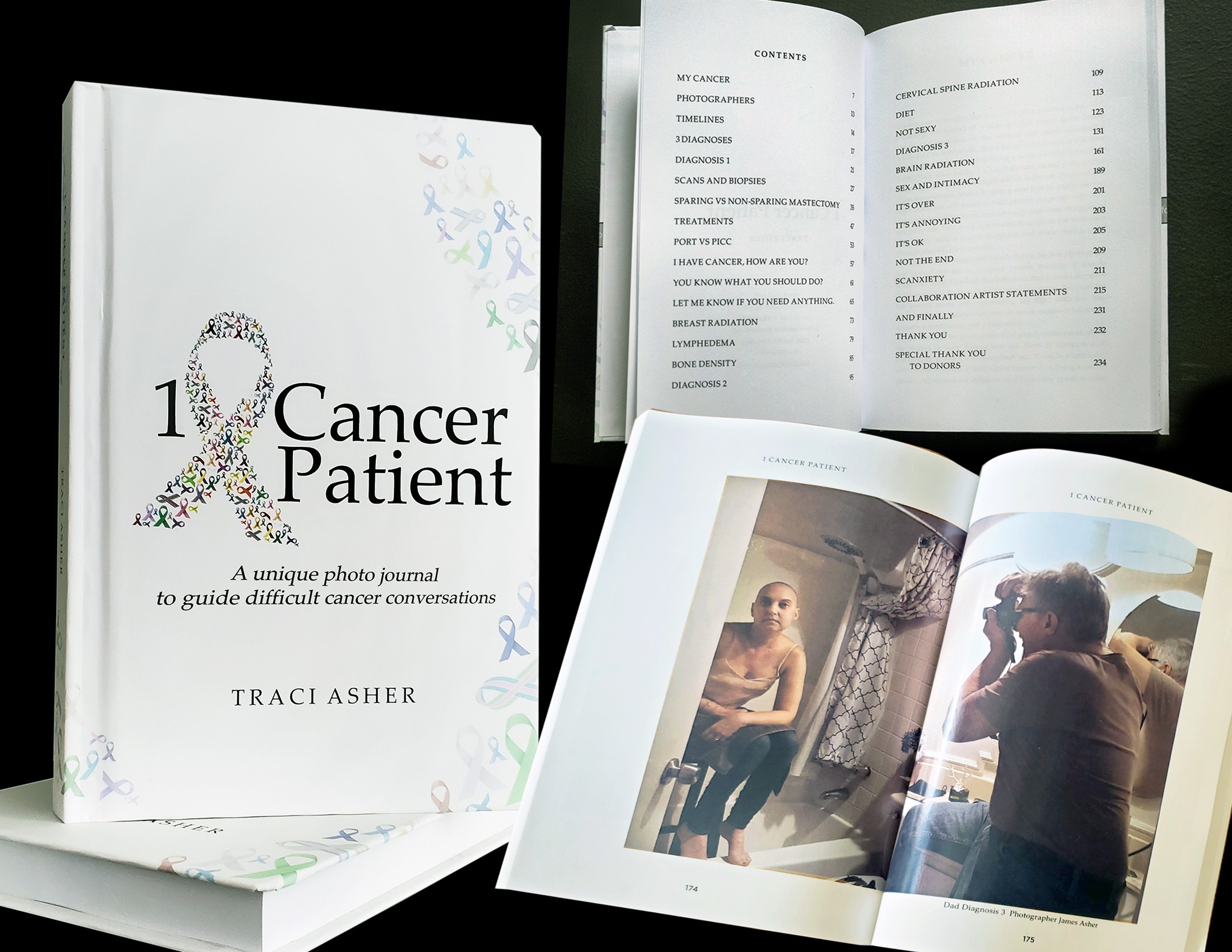
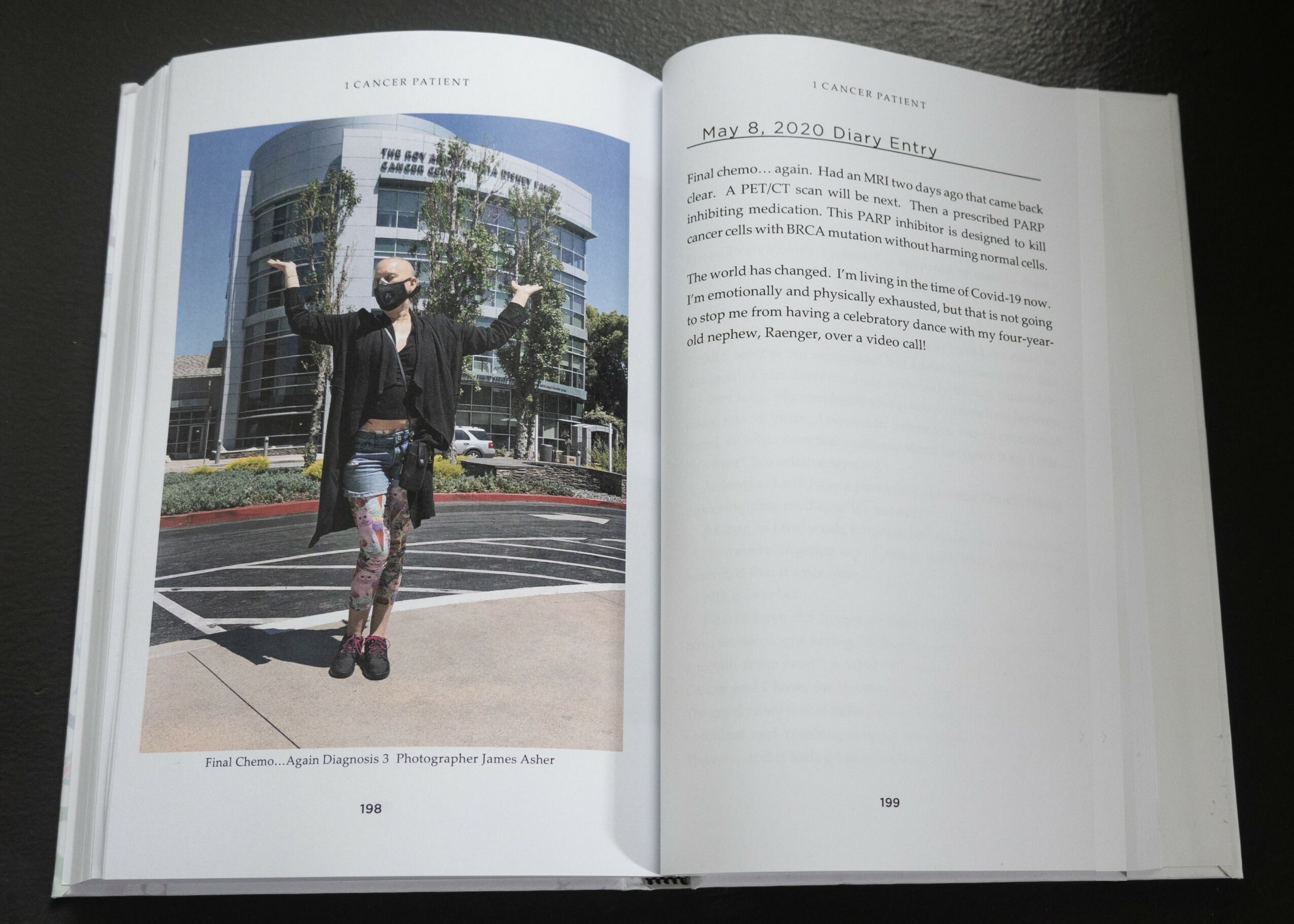
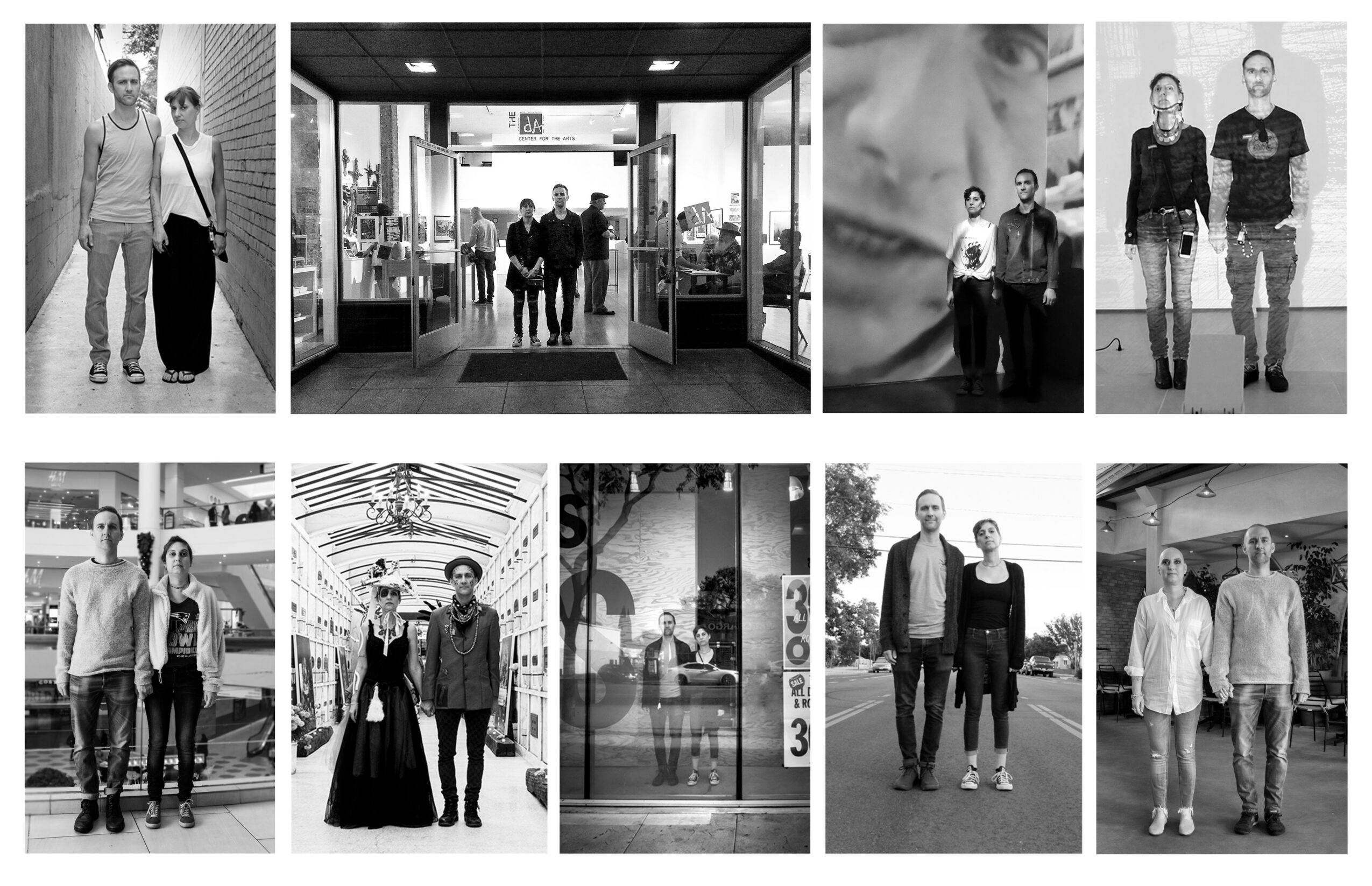
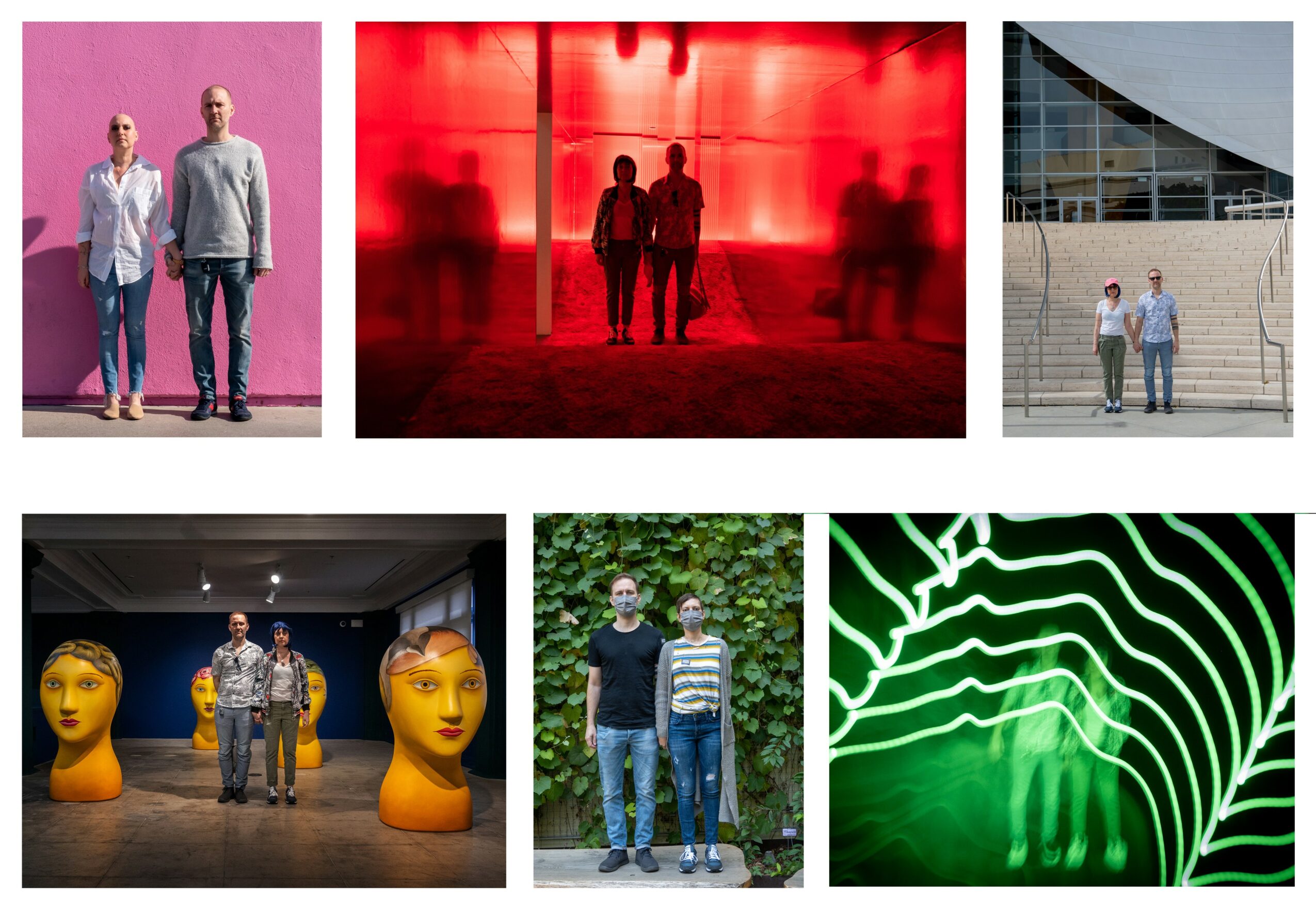
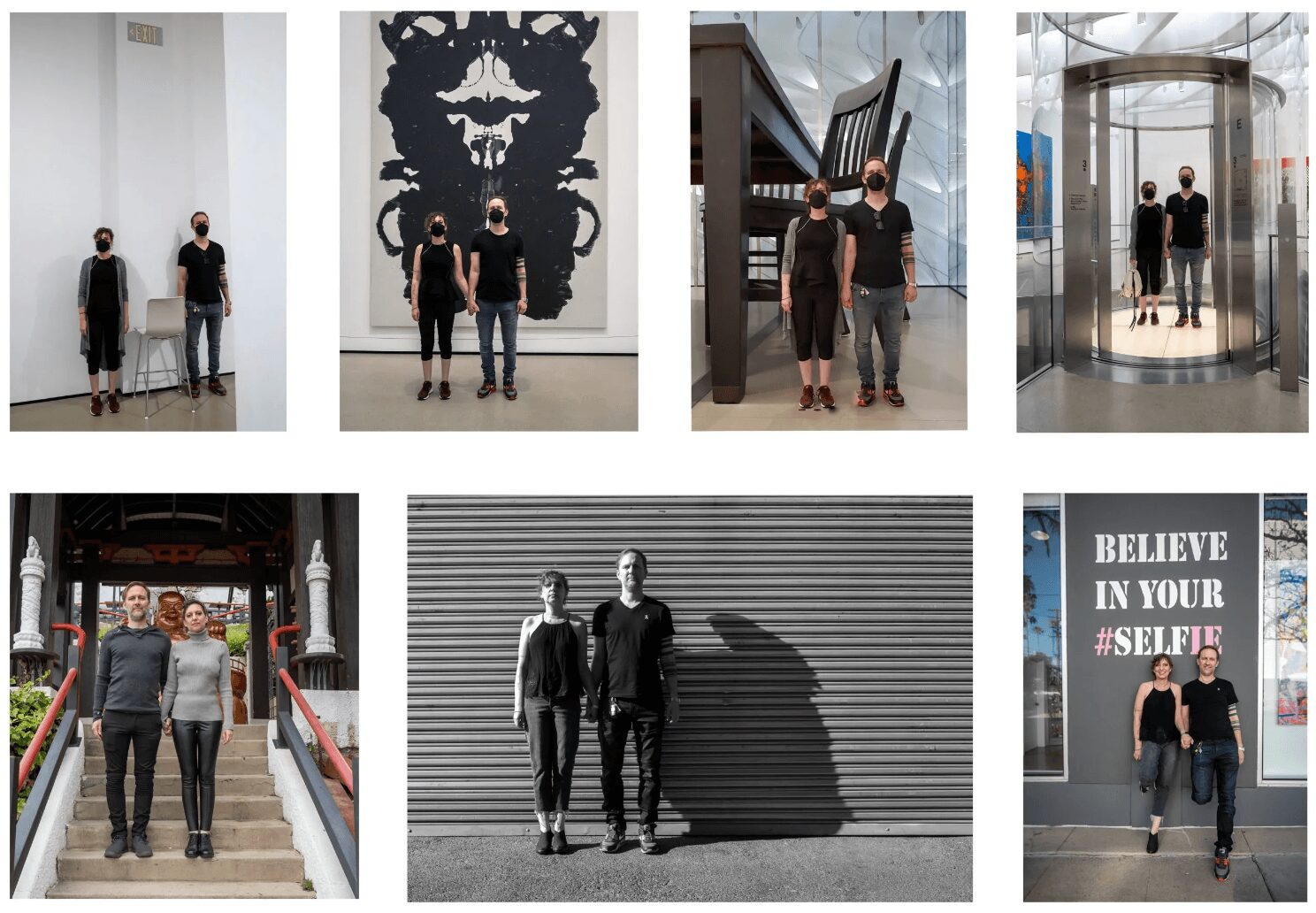
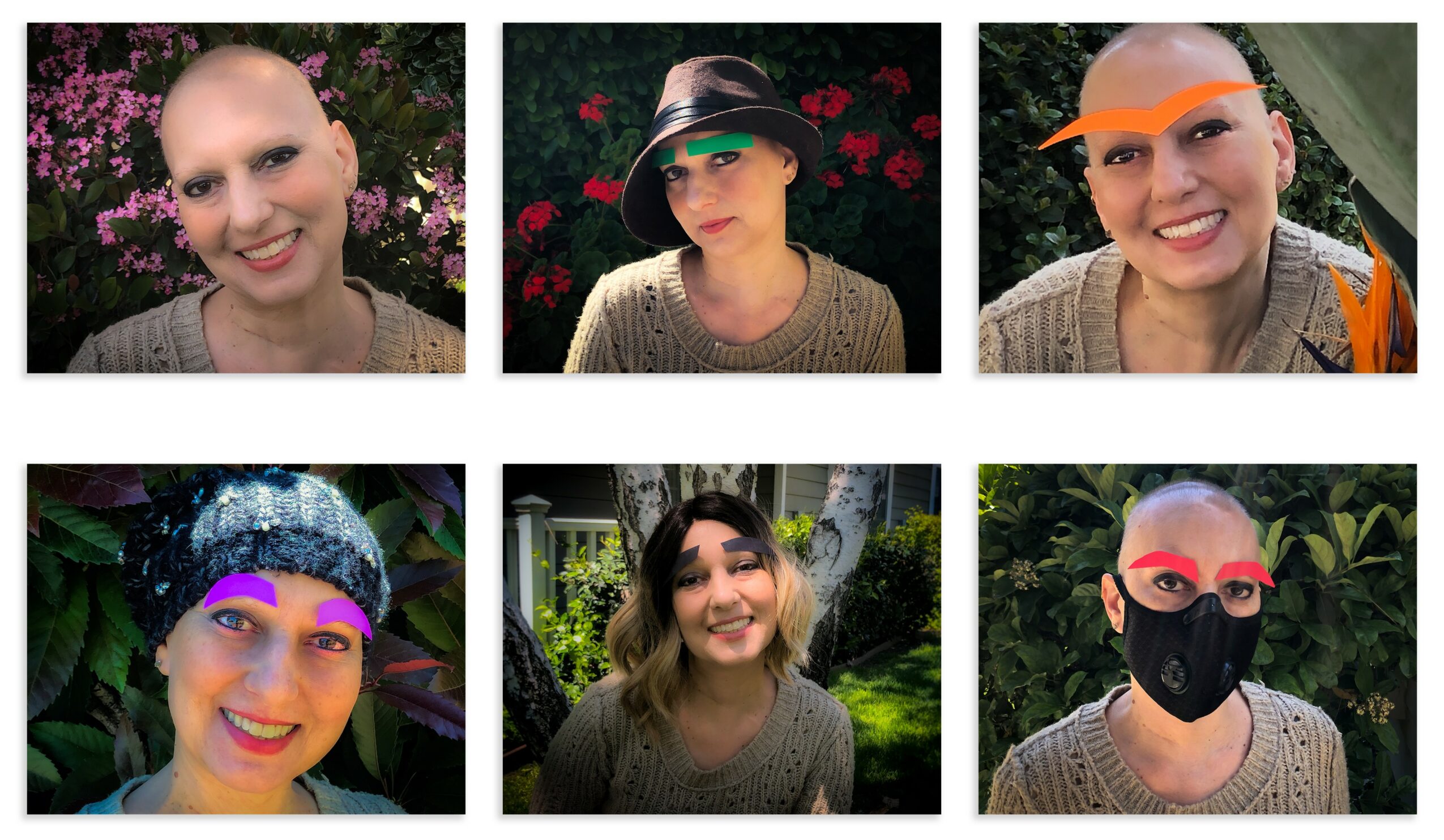
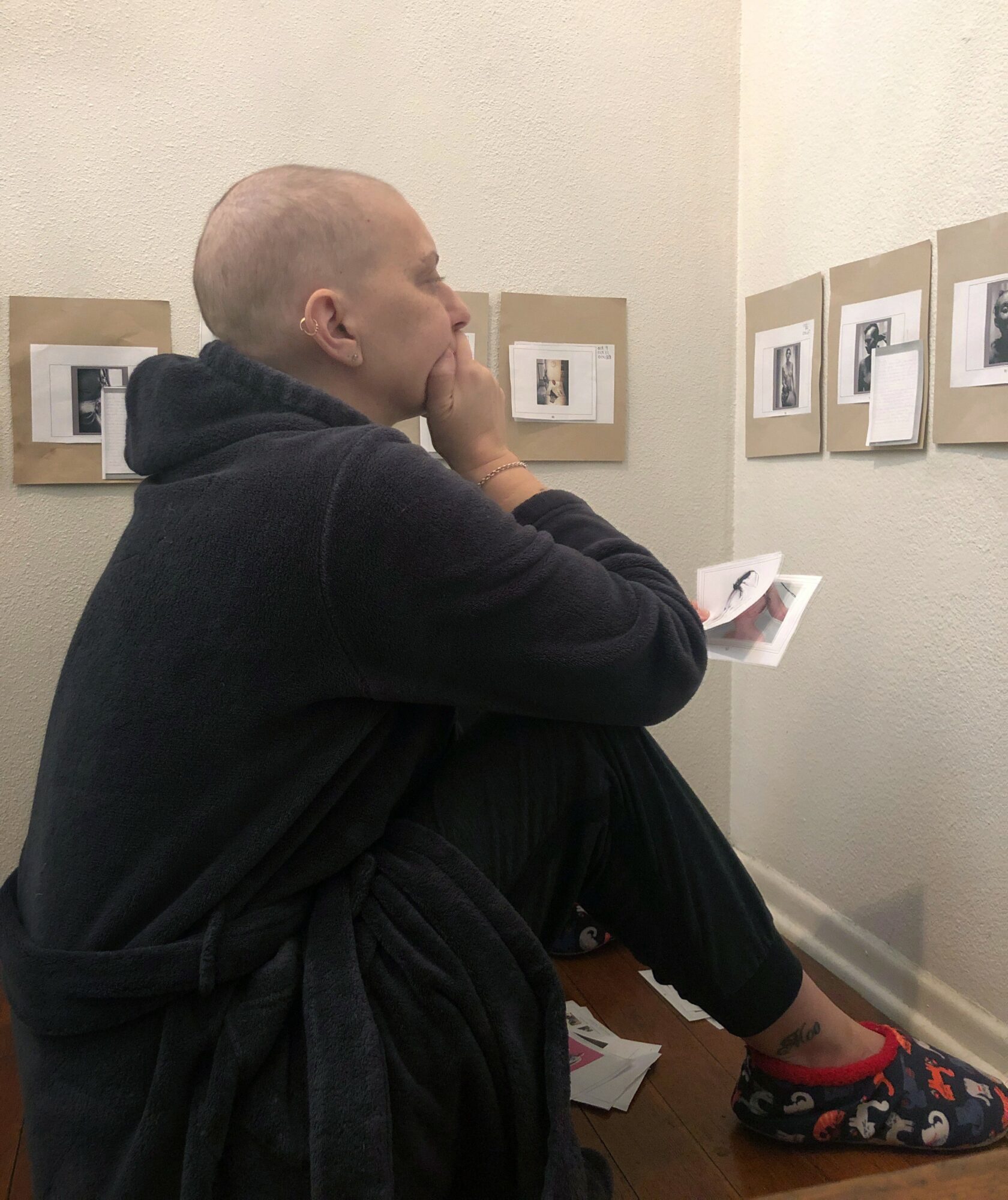
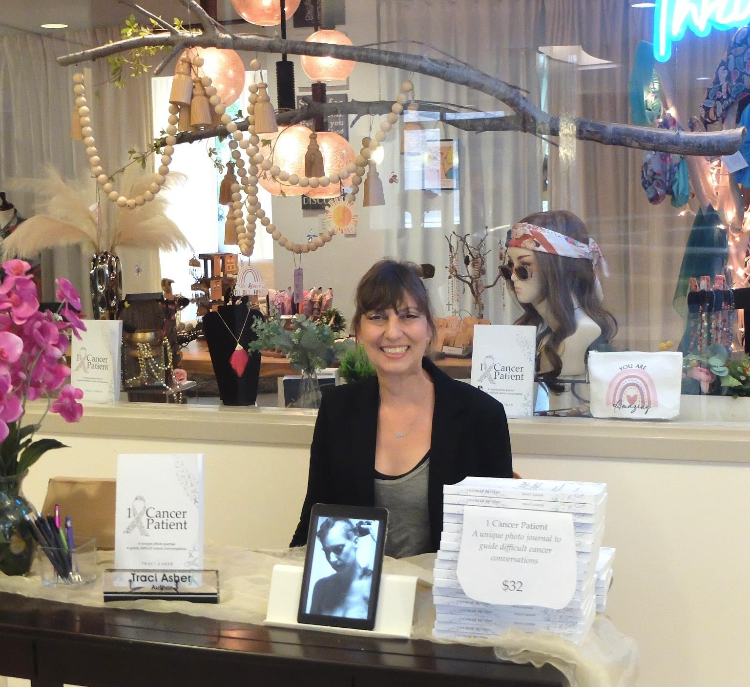
Image Credits
Warren Perlstein
James Asher











